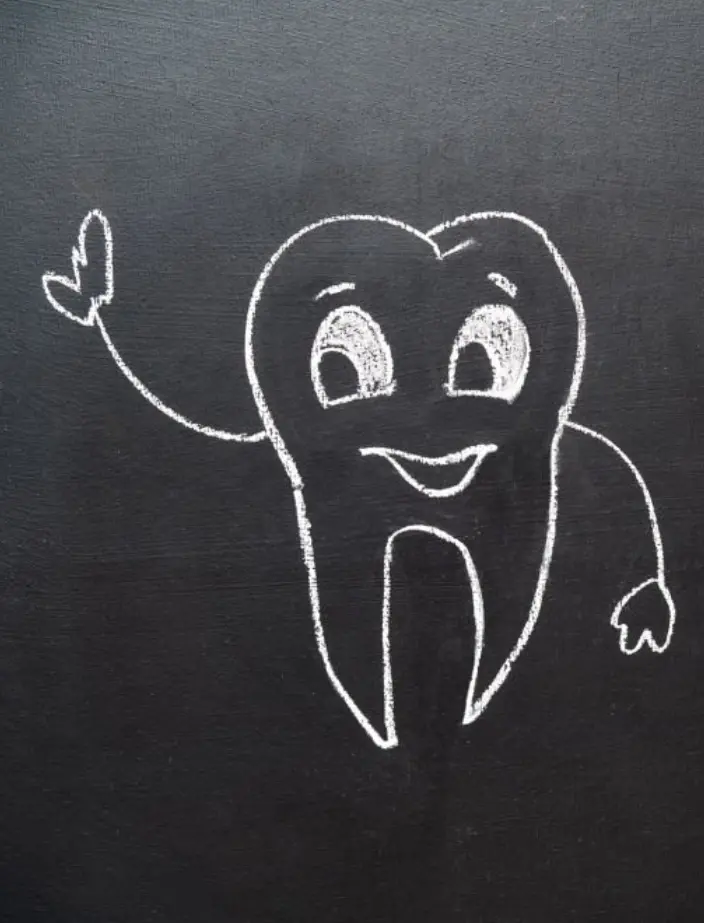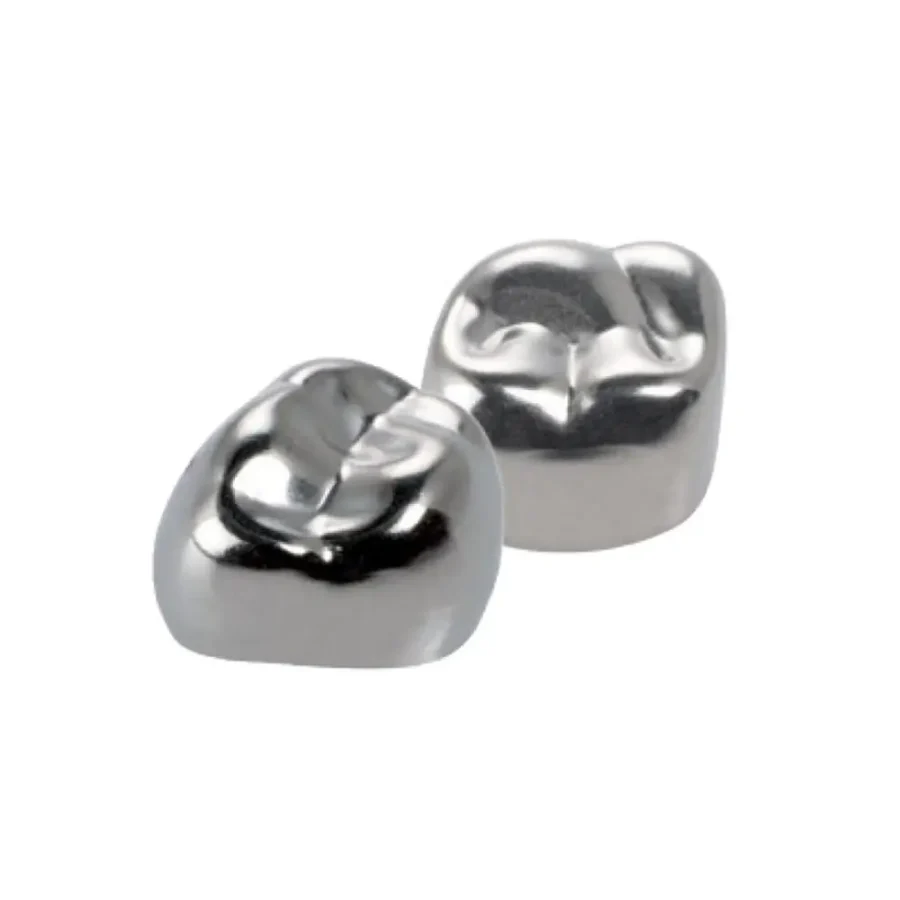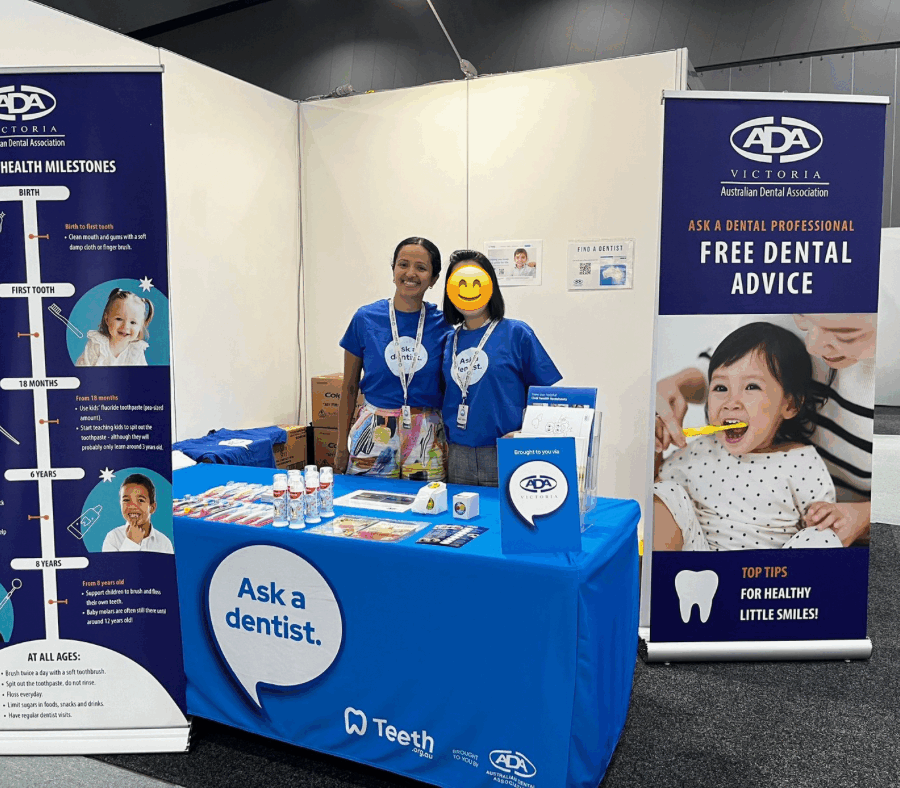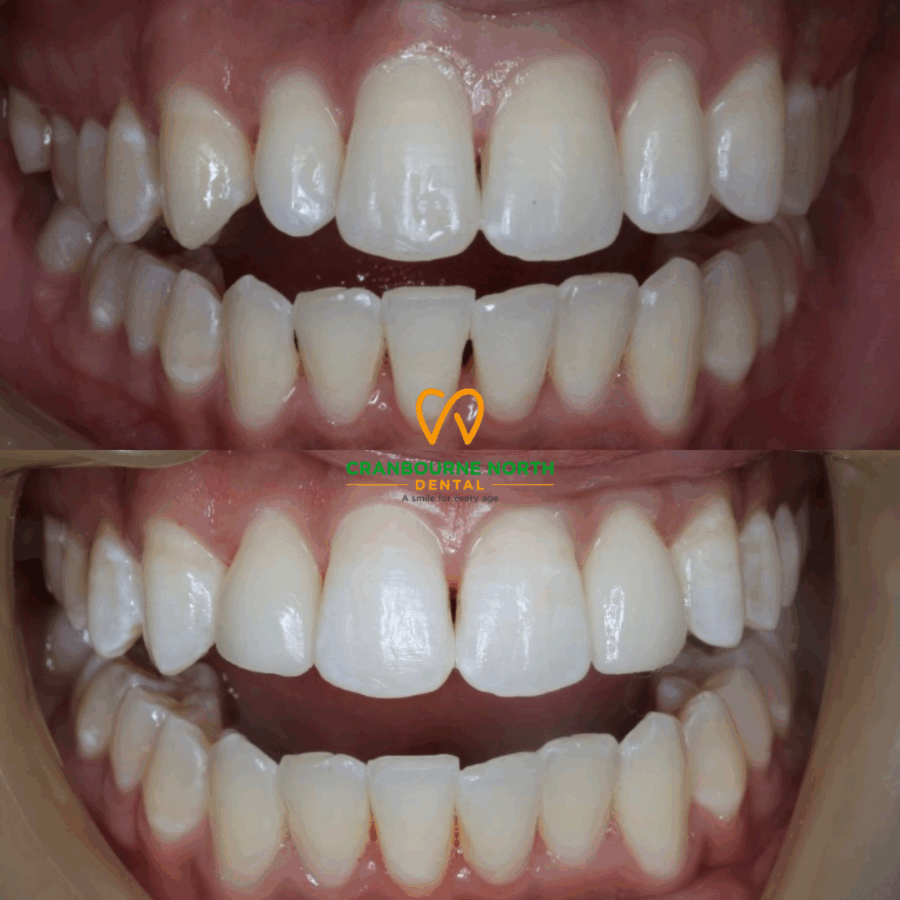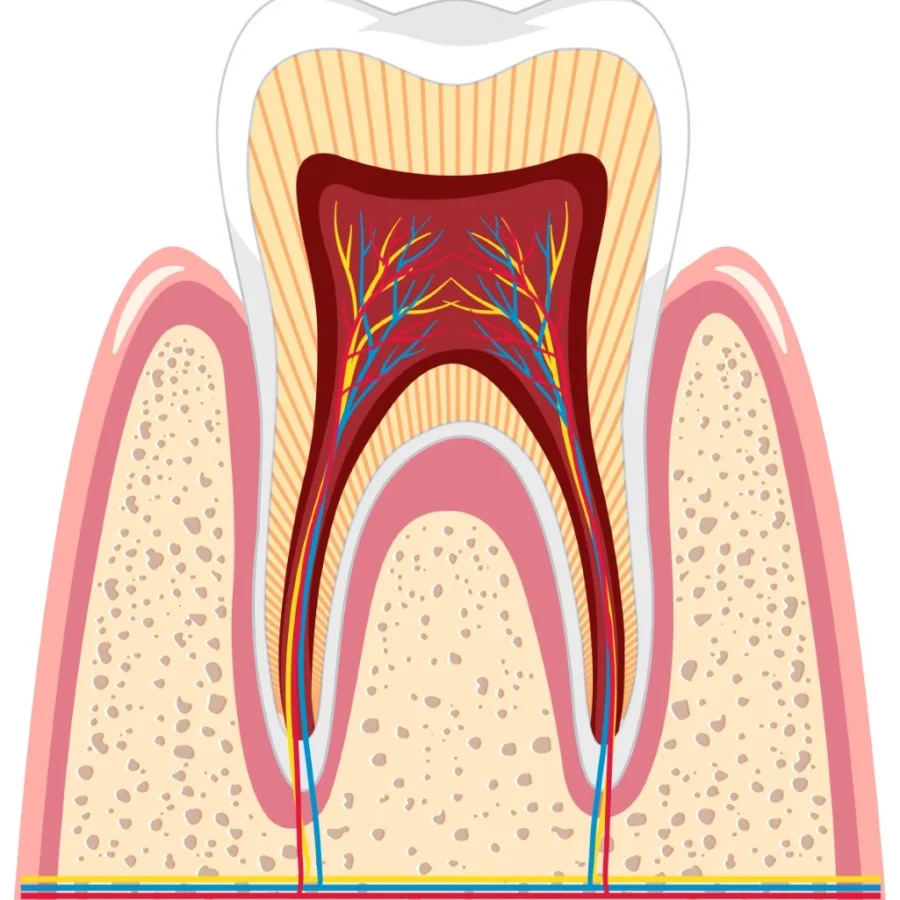Hypomineralised Teeth (Chalky Teeth)
Hypomineralised teeth occur when the enamel does not develop properly, leading to weaker, more porous areas. These teeth may appear chalky white, yellow, or even brown and are more prone to wear and breakdown than normal enamel. Read on to learn more about how we can help treat your Chalky teeth in Cranbourne.
Causes of Hypomineralised Teeth
While there is no single known cause, several factors have been associated with hypomineralisation of teeth, including:
- Certain antibiotics taken by the mother during pregnancy or by the child during early tooth development. These are no longer commonly used in young children or pregnant women.
- Serious childhood illnesses that occur while teeth are forming.
- Excess fluoride exposure during early development.
Signs and Concerns
Dentists check for hypomineralisation during routine dental exams. If identified, keeping the affected teeth clean and well-maintained is essential to prevent further weakening. If you notice unusual discoloration or rapid breakdown of a tooth, seek dental advice promptly.
Treatment Options for Hypomineralised Teeth
Although there is no way to reverse hypomineralisation, several treatments can help strengthen and protect affected teeth:
- Preventive Measures: Fluoride varnishes and fissure sealants can help reinforce the enamel and reduce the risk of decay.
- Whitening Treatments: In some cases, professional whitening can help blend discoloration, but it must be done cautiously as white patches may become more noticeable.
- Enamel Microabrasion: A special technique that removes a thin layer of enamel and applies a material to help improve the appearance.
- Veneers: For severe cases, composite or porcelain veneers can enhance the look of front teeth affected by hypomineralisation.
Preventing Further Damage
Since hypomineralised teeth are more susceptible to cavities and wear, it’s important to follow a strong oral hygiene routine:
- Brush twice daily with fluoride toothpaste.
- Floss every day.
- Limit sugary and acidic foods and drinks.
- Use any special toothpaste or dental treatments recommended by your dentist.
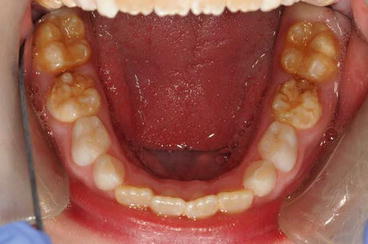
Call Us or Book Online Now
Frequently Asked Questions For Hypomineralisation of Teeth (Chalky Teeth)
Does my child’s hypomineralised baby tooth need treatment?
It depends on the tooth’s condition and your child’s age. If the tooth remains intact, sealing it may prevent further damage. If it starts breaking down, a stainless steel crown might be needed for protection. In cases of severe decay or infection, treatment may involve pulp therapy or removal.
Should a hypomineralised adult tooth be removed?
In severe cases, if a permanent tooth is unlikely to last, early removal might be considered to allow other teeth to align properly. However, this is only an option if diagnosed early and carefully planned with your dentist.
Why do my teeth keep breaking? Could it be hypomineralisation?
Not all cases of weak or broken teeth are due to hypomineralisation. Other factors, such as cavities, large fillings, trauma, or bite issues, can also contribute. A dentist can assess your teeth and determine the best treatment.

